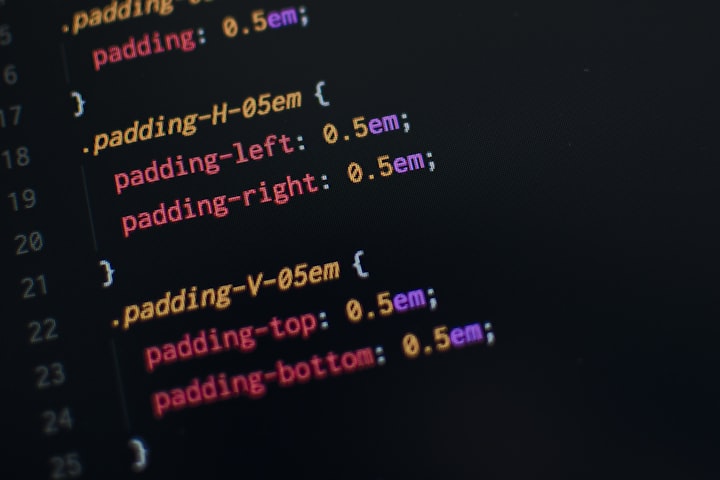
What is 'magic'? Everyone's got an opinion, and they often contradict. Some say magic is the flashy stuff you see in movies; emphasis on movies. Other people say that there's magic, if subtle and mundane, in everyday life; the way the leaves change, the way a flower can grow through the cracks in concrete, the way some people have weird luck in certain things, or certain mundane abilities. There are those who believe that 'magic' lies in sleight of hand, or that it's just another word for 'technology' or 'science', or that it's real but we just haven't discovered or figured it out yet.

My personal belief lies somewhere between the last two. If you've passed an eleventh grade science class, then once you start getting deep enough into wicca, the latter starts sounding oddly reminiscent of the former. The idea goes something like this; the entire world, the entire universe, has this underlying current of energy. This energy is within everything and everyone, buzzing through our atoms, connecting and interlinking everything. This ties in with Buddhist principles of 'oneness', that we are all one, that every being and object is a small part of a greater whole, a drop in a vast sea. The Hindu concept of the chakras is also relevant, though that concept deals more with the flow of that energy through the body, rather than the entire universe. In terms of science, that energy that these spiritual sources talk about could very well be atoms, or quarks, or even the higgs-boson particle; the very basest of particles that makes up and, yes, connects every single material object in the universe.
Magic is, simply put, the awareness of and ability to harness that energy to achieve certain results. Now, when one looks at the more popular results that people usually try to achieve with magic, one might think that this is the point at which the idea of magic strays from basic scientific concepts, but I would argue otherwise, considering that pretty much every spell (that I've come across, at least) can be categorized into three groups; mindset magic, divination magic, and fortune magic.
Mindset magic is made up of spells that change you or your own mindset, and by their function, could technically be considered placeboes. Among these are spells to find love, which are designed to put you in the mindset to seek out love, and make you more receptive/perceptive to any advances made on you by others; spells to find work, which make you more proactive in searching for work and make you more open to opportunities; spells to 'spice things up' in a relationship, which get you in a sexy mood, and since humans are suggestible, if you're in a sexy mood, your partner will more than likely reciprocate; spells to lose weight or other similar effects, which are really not much more than declaring your goals out loud, which has been proven to increase motivation and commitment to those goals, etc.

Divination magic consists of spells that provide information, such as foreseeing the future, seeing/understanding a situation for what it is, or other augury/divination spells. Any information on things that have not yet happened that the caster is seeking already exists in the world, and if one ascribes to the theory that the future is predetermined, then so, too, does any information on the future, and the spell is no more than a retrieval of that information, similar to how a CPU retrieves information from a computer's hard drive. Even if one does not ascribe to this theory, however, most predictions made by such spells are vague enough that they could apply to most actual future scenarios.
Finally, fortune magic is what I call the spells that shift circumstances in your favour; luck spells, aid spells, any spells that affect things that are beyond your direct control. This is where we get into the good stuff. Spells like these are the ones that most people would consider to be "real magic", beyond the reach of science. I, once again, argue otherwise. Spells of this category, I believe, affect chance, or what we, with our limited perception, call chance. In reality, though, there is no such thing as chance; every single event in history was brought about not by fate, or luck, or coincidence, but by a series of factors that aligned in just such a way to lead to the event in question. Some call this the butterfly effect; the idea that something as small as the flap of a butterfly's wings in Brazil can set off a tornado in Texas. Every single thing that has happened, that is happening right now, or that will happen, is just a combination or a culmination of an incalculable number of factors that are each also the result of an equally incalculable number of factors, and so on and so forth, to the point that if one were able to acquire a more or less rudimentary understanding of the general shape of enough of these factors, one might be able to tweak them in just such a way that a desired effect, event, or result is achieved. To any outside observer, one who does not have that same understanding of the factors that made this event possible, would that not come across as magic?

So, what is magic? Is it belief or faith? Is it science, albeit a very fringe kind of science? Is it spirituality, oneness? Or is it, perhaps, something that lies happily in between, in that foggy grey area where science, spirituality and faith intersect, and live, and coexist harmoniously, not just despite one another, but interdependently, each upholding the other and blending slightly at the edges?
But that's just my two cents.





Comments
There are no comments for this story
Be the first to respond and start the conversation.